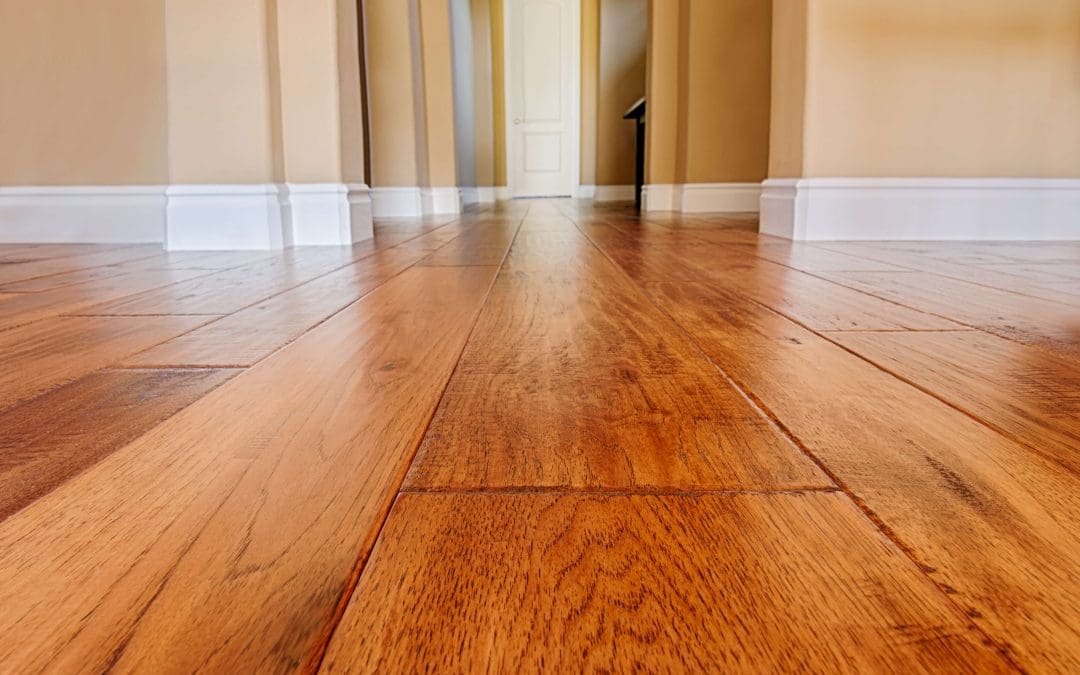Hardwood floors bring elegance and warmth to any home. They’re timeless, durable, and can last for generations if properly maintained. However, keeping them in tip-top shape requires some know-how. Whether you’ve just installed new hardwood or are looking to rejuvenate older floors, understanding how to care for them will protect your investment and keep your floors looking stunning for years to come.
Understanding Your Hardwood Floors
The first step in caring for hardwood floors is knowing what type of wood and finish you’re dealing with. Some floors are made from solid hardwood, while others are engineered wood. The finish—whether polyurethane, oil, or wax—determines the cleaning and maintenance methods you should use. If you’re unsure, consult with your flooring manufacturer or a flooring expert.
Daily Cleaning to Prevent Damage
The simplest way to care for hardwood floors is to keep them clean. Dust and debris act like sandpaper, scratching the surface over time. Use a microfiber dust mop or a soft-bristle broom to sweep your floors daily. If you prefer vacuuming, ensure your vacuum is set to the hardwood setting or has a soft floor attachment to avoid scuffs.
When spills occur, wipe them up immediately with a damp, soft cloth. Standing water is one of the biggest enemies of hardwood floors, as it can cause warping and staining. Always make sure the area is thoroughly dried after cleaning up a spill.
Weekly Maintenance for a Deeper Clean
In addition to daily cleaning, a weekly routine will help preserve the shine and finish of your hardwood floors. Use a pH-neutral hardwood floor cleaner and a damp (not wet) mop. Avoid harsh chemicals, abrasive scrubbers, or steam cleaners, as these can damage the wood and finish.
Pay special attention to high-traffic areas, as they tend to accumulate more dirt and grime. Rotate furniture and rugs occasionally to distribute wear evenly across the floor. This simple step can prevent visible traffic patterns from forming over time.
Protecting Your Floors From Wear and Tear
When it comes to hardwood floor care, prevention is just as important as cleaning. Use felt pads under furniture legs to avoid scratches and dents. Area rugs and runners can help protect high-traffic zones, especially in entryways and hallways. Choose rugs with non-slip backing that won’t damage the finish.
Shoes—particularly high heels or those with hard soles—can be tough on hardwood floors. Encourage family and guests to remove their shoes upon entering your home. If you have pets, trim their nails to minimize the risk of scratches.
Seasonal Care and Humidity Control for Hardwood Floors
Wood is a natural material that expands and contracts with changes in temperature and humidity. To minimize these effects, maintain a consistent indoor environment. Use a humidifier during dry winters to prevent gaps from forming between planks and a dehumidifier during humid summers to avoid swelling or cupping.
If your floors begin to look dull despite regular cleaning, it might be time to refresh the finish. Depending on the type of wood and wear, you might need professional refinishing every few years. Consult with a flooring expert to determine the best option for your home.
Long-Term Care Tips
Over time, even the best-maintained floors will show signs of aging. Embrace these imperfections as part of the wood’s natural beauty. However, if scratches, dents, or discoloration become too noticeable, you may need to consider refinishing. A professional sanding and refinishing job can restore your floors to their original glory, making them look as good as new.
For small scratches, use a wood touch-up pen or filler that matches your floor’s color. Always test a small, inconspicuous area before applying any product widely.
Caring for hardwood floors may take effort, but the results are worth it. With proper maintenance, your floors will remain a beautiful and enduring feature of your home for generations.
Frequently Asked Questions on Hardwood Floors
How often should I clean my hardwood floors?
Daily dusting and weekly damp mopping with a hardwood-safe cleaner are ideal. Adjust your routine based on the level of foot traffic in your home.
Can I use vinegar or water to clean my hardwood floors?
Vinegar is acidic and can damage the finish over time. Use water sparingly, never enough to pool on the surface, and stick to cleaners specifically designed for hardwood floors.
What should I do if my hardwood floor gets scratched?
For minor scratches, use a touch-up pen or filler. For deeper damage, consult a professional about refinishing options.
How do I know if my floors need refinishing?
If your floors have lost their shine, show visible scratches, or the finish is wearing off, it may be time for professional refinishing.
Homesmith Home Inspections offers inspections in the Houston, Texas area. Contact us to book our services.

